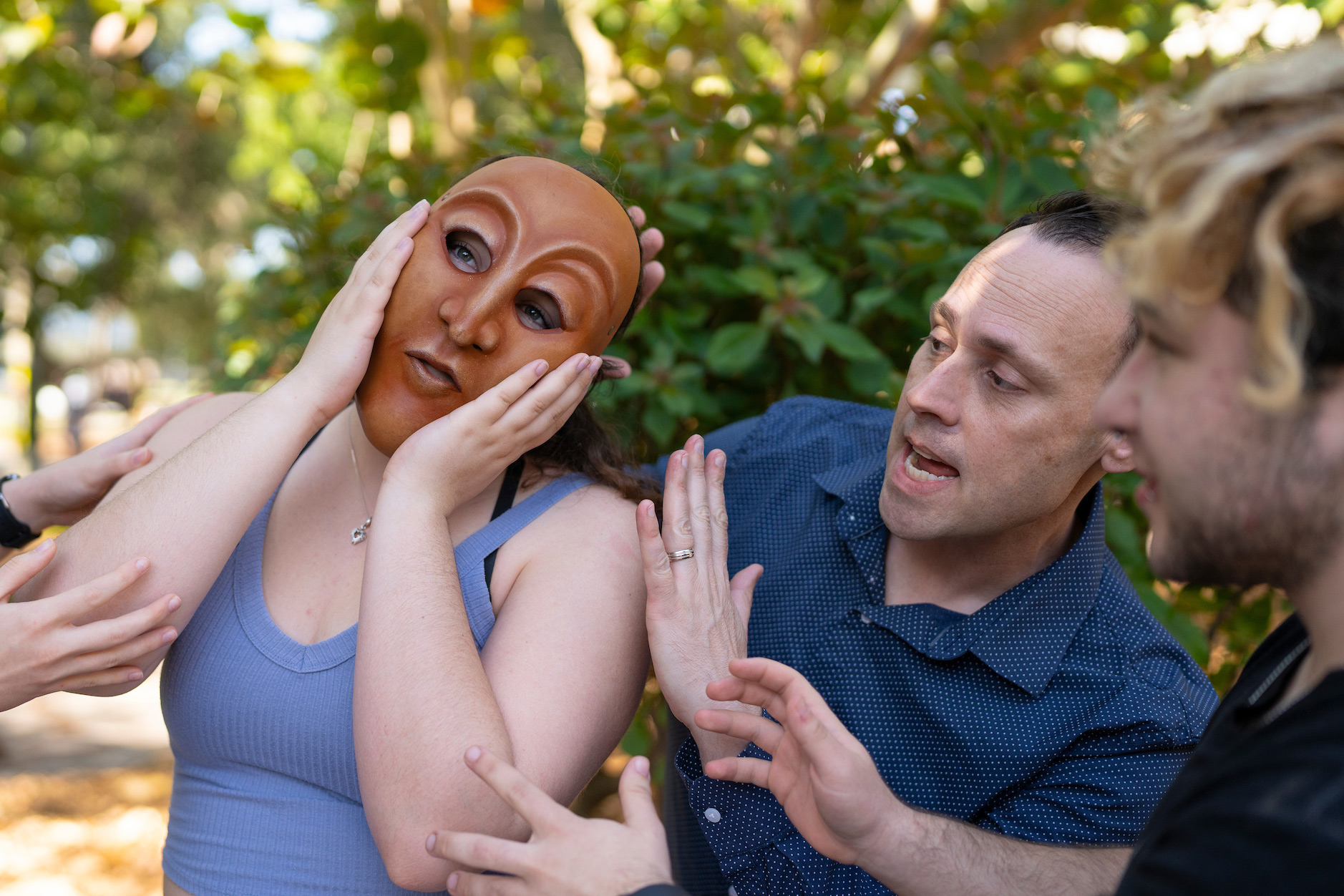Richard Tetrault, technical theatre coordinator for Eckerd College, envisions a new local venue to temporarily replace the damaged Bininger theatres for student productions with access to the stars.
Tetrault suggests that the new Tim Scovanner ’11 Pavilion on Eckerd’s South Beach has the electrical capabilities to host a staging setup for the postponed performance of Fire Bringer—if audience members are willing to provide their own seating. It’s one of many possible solutions being discussed for the spring season in light of the upheaval of fall.
During the rampages of hurricanes Helene and Milton, the Bininger Center for Performing Arts sustained damage to its studios, costumes and dimmer-lighting system.
The building was inundated with two feet of storm surge in the lobby, as well as suffering water damage under the floorboards and broken glass windows. The makeup room and scene shop, however, remain intact.

Technical Director Rick Tetrault
Professor of Theatre Gavin Hawk, discipline coordinator of Eckerd College’s theatre major, says several productions scheduled for this fall had to be rescheduled, such as Too Much Light Makes the Baby Go Blind and Fire Bringer.
Classes have moved to spaces across campus during the recovery period, which has an uncertain timeline.
If theatre spaces aren’t ready by February, Hawk says professors will explore alternative rehearsal and performance venues on campus, such as the Dan and Mary Miller Auditorium and Cobb Gallery. In the final full week of the semester, performances will be held in Miller Auditorium and the Triton’s Pub—including a climate action performance titled Weathering and Treasuring and a musical theatre revue called the Miscast Cabaret.
They also will look into professional spaces around the Tampa Bay area, such as The Studio@620 and American Stage, to make sure productions can still go forward.
“An advantage is that we will bring shows to an outside audience,” Hawk says.
Tetrault believes adaptable spaces for shows can be found outside. Heavy, bulky stage sets will be modified or substituted for easier transport. Just before both hurricanes hit, Tetrault was beginning to set up the stage for a production. The process starts by ordering lumber for a student designer who plans layouts, then those wood pieces are painted in the scene shop by students in the theatre production class.
Tetrault says Tim’s Pavilion offers the electrical service needed for the production of Fire Bringer and most shows that usually take place in Bininger that require a dimmer-lighting system.
Hawk’s Bachelor of Fine Arts in theatre and musical theatre students have been accommodating and understanding of the situation, although being out of class in a physical sense was not ideal during the evacuations.
Eliza Somers, a sophomore theatre student from St. John’s, Newfoundland, Canada, says, “It has definitely caused us to learn how to adapt and find ways to create within different performance spaces. A lot of the BFAs have come together, and we’re producing a cabaret-style show in the pub [Triton’s Pub] to have a chance to perform. Although it’s definitely hard, we’ve found ways to still perform and create in different spaces.”
Hawk, too, is undeterred. “This challenges us to think outside of the box for how performance will be presented and redefine theatre to some,” he says.
He quotes David Mamet, an American playwright, when speaking about the basic structures his program will need for the show to go on: “‘Theatre requires: a space, an audience and a performer.’”















